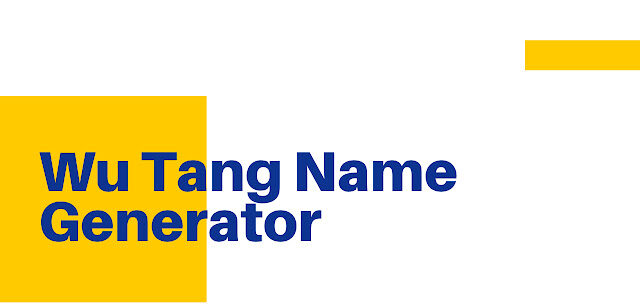Key Elements of Effective Skill Assessment
In today’s competitive job market, employers are faced with the challenge of identifying the right candidates who possess the necessary skills and competencies to excel in their roles. This is where the assessment to test skills plays a crucial role. Skill assessment involves evaluating a candidate’s abilities, knowledge, and potential to determine their suitability for a particular job. It forms the foundation of the recruitment process, providing valuable insights into a candidate’s capabilities beyond what can be gleaned from their resume or initial interviews.
Within the realm of skill assessment, two key components stand out: pre-employment screening and technical interview questions. Pre-employment screening involves various methods such as background checks, reference checks, and behavioral assessments to ensure that candidates meet the necessary criteria and align with the company’s culture. On the other hand, technical interview questions delve into the specific skills and expertise required for the job, testing candidates’ problem-solving abilities and domain knowledge.
In this blog, we’ll explore the key elements that contribute to effective skill assessment, with a focus on how pre-employment screening and technical interview questions play integral roles in the hiring process. By understanding these elements and best practices, employers can streamline their recruitment efforts and make informed decisions that lead to successful hires. So, let’s dive in and uncover the essential components of skill assessment in today’s dynamic employment landscape.
Understanding Skill Assessment
Skill assessment is the cornerstone of effective hiring processes, providing valuable insights into a candidate’s suitability for a given role. To grasp its significance fully, it’s essential to understand the different types of skill assessment methods employed in recruitment.
Types of Skill Assessment
- Pre-Employment Screening: This initial phase of skill assessment involves various measures aimed at verifying a candidate’s background, credentials, and suitability for the role and the organization. Background checks, reference checks, and behavioral assessments are commonly used to ensure that candidates align with the company’s values and culture. By thoroughly vetting candidates during this stage, employers can mitigate risks associated with hiring individuals who may not possess the requisite skills or may not fit well within the organization.
- Technical Interview Questions: Technical interviews are designed to evaluate a candidate’s proficiency in specific skills or areas of expertise relevant to the job. These interviews often include questions or scenarios that assess problem-solving abilities, critical thinking skills, and domain knowledge. By posing relevant technical questions, employers can gauge a candidate’s competence and potential contribution to the team.
Key Elements of Effective Skill Assessment
Effective skill assessment is essential for making informed hiring decisions and ensuring that candidates possess the necessary competencies for a given role. To achieve this, several key elements must be considered and integrated into the assessment process.
Clear Objectives and Criteria
Clear objectives and criteria serve as the foundation of effective skill assessment. Before evaluating candidates, it’s crucial to define the specific skills, knowledge, and attributes required for the role. This involves aligning assessment criteria with the job description and organizational goals to ensure that evaluations are relevant and meaningful.
By establishing clear objectives, employers can focus their assessments on identifying candidates who possess the desired qualities and capabilities. Moreover, defining success metrics enables consistent evaluation across candidates and helps to streamline the hiring process.
Additionally, clarity in objectives and criteria promotes transparency and fairness in the assessment process. Candidates understand what is expected of them, allowing for a more equitable evaluation of their skills and qualifications.
In summary, clear objectives and criteria are fundamental elements of effective skill assessment. They provide direction, consistency, and fairness, ultimately leading to better hiring decisions and ensuring that candidates are well-suited for the roles they are being considered for.
Best Practices for Pre-Employment Screening
Pre-employment screening is a critical phase of the hiring process, aimed at verifying candidates’ backgrounds and ensuring they align with the company’s values and requirements. To conduct effective screening before employment, several best practices should be followed.
Background Checks and References
One of the primary methods of pre-employment screening involves conducting thorough background checks and contacting references provided by the candidate. Background checks typically include verifying employment history, educational credentials, and checking for any criminal records or legal issues. Contacting references allows employers to gain insights into a candidate’s past performance, work ethic, and interpersonal skills. By diligently conducting these checks, employers can confirm the accuracy of the information provided by candidates and assess their suitability for the role.
Behavioral Assessments
In addition to verifying qualifications and credentials, pre-employment screening often includes behavioral assessments. These assessments aim to evaluate a candidate’s personality traits, communication skills, and cultural fit within the organization. Behavioral assessments may involve psychometric tests, situational judgment tests, or personality assessments. By assessing candidates’ behavioral traits, employers can better predict how well they will perform in the role and integrate into the company culture.
Assessments of Cognitive Abilities
Another aspect of pre-employment screening involves assessing candidates’ cognitive abilities, such as problem-solving skills, critical thinking, and decision-making. Cognitive assessments may include aptitude tests, numerical reasoning tests, or logical reasoning tests. These assessments help employers gauge a candidate’s ability to handle the demands of the job and make informed decisions.
Incorporating Technical Interview Questions
Technical questions for interview play a pivotal role in assessing a candidate’s suitability for a specific role, particularly in fields requiring specialized knowledge or skills. To effectively incorporate technical interview questions into the hiring process, it’s essential to understand their purpose and types.
Purpose and Importance in Skill Assessment
The primary purpose of technical interview questions is to evaluate a candidate’s proficiency in key technical areas relevant to the job. These questions aim to assess the candidate’s problem-solving abilities, critical thinking skills, and domain expertise. By posing technical questions, employers can gain insights into a candidate’s capabilities beyond what is evident from their resume or initial interviews. Moreover, technical interview questions help ensure that candidates possess the necessary skills to excel in the role and contribute to the organization’s success.
Types of Technical Interview Questions
Technical interview questions come in various forms, each serving a specific purpose in assessing a candidate’s skills and expertise. Common types of technical interview questions include:
- Behavioral Questions: These questions assess how candidates have applied their technical skills in real-world situations, providing insights into their problem-solving approach and decision-making abilities.
- Problem-Solving Scenarios: Candidates are presented with hypothetical scenarios or case studies related to the job role, requiring them to analyze the situation and propose solutions.
- Role-Specific Questions: These questions focus on specific technical skills or knowledge areas required for the role, such as programming languages, software tools, or industry-specific concepts.
Tips for Effective Technical Interviews
To conduct effective technical interviews, it’s essential to follow some best practices:
- Structured Interview Processes: Design interview questions that are structured and standardized to ensure consistency and fairness across candidates.
- Consistency in Questioning: Ask consistent technical questions to all candidates to facilitate comparison and evaluation.
Challenges and Solutions in Skill Assessment
Skill assessment is integral to the hiring process, but it comes with its own set of challenges. Understanding and addressing these challenges are essential for ensuring the effectiveness of skill assessment methods.
Overcoming Bias in Assessment
One of the primary challenges in skill assessment is the presence of bias, which can skew evaluations and lead to unfair treatment of candidates. Bias can manifest in various forms, including unconscious biases based on factors such as gender, race, or socioeconomic background. To overcome bias in assessment, employers can implement strategies such as structured interview processes, blind resume screening, and diversity training for hiring teams. By fostering awareness of biases and implementing measures to mitigate them, employers can ensure that skill assessment processes are fair and equitable for all candidates.
Addressing Skill Shortages and Mismatches
Another challenge in skill assessment is addressing skill shortages and mismatches between candidates’ skills and job requirements. In rapidly evolving industries, identifying candidates with the right skill set can be challenging. To address this challenge, employers can invest in ongoing training and development programs to upskill existing employees and bridge skill gaps. Additionally, leveraging technology such as applicant tracking systems and skill assessment platforms can help identify candidates with transferable skills or potential for growth. By proactively addressing skill shortages and mismatches, employers can build a skilled workforce that meets the demands of their organization.
Ensuring Fairness and Equal Opportunity
Ensuring fairness and equal opportunity in skill assessment is essential for creating an inclusive and diverse workplace. However, systemic barriers and inequities can hinder candidates’ access to opportunities and impact their performance in assessments. Employers can promote fairness and equal opportunity by providing accommodations for candidates with disabilities, offering alternative assessment methods, and fostering a culture of inclusion and belonging. Additionally, conducting regular reviews of assessment processes to identify and address any biases or barriers can help create a more equitable hiring environment.
Conclusion
In today’s dynamic employment landscape, effective skill assessment is crucial for identifying top talent and making successful hires. By incorporating key elements such as clear objectives, valid assessment tools, standardization, and flexibility, employers can streamline their hiring processes and ensure that candidates are well-suited for the roles they are being considered for.
Pre-employment screening and technical interview questions play integral roles in the skill assessment process, providing valuable insights into candidates’ backgrounds, competencies, and potential contributions to the organization. Through background checks, behavioral assessments, and cognitive evaluations, employers can verify candidates’ qualifications, assess their fit with the company culture, and evaluate their problem-solving abilities and technical expertise.







